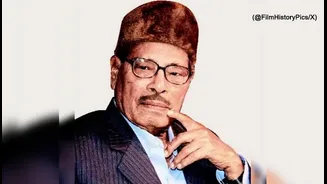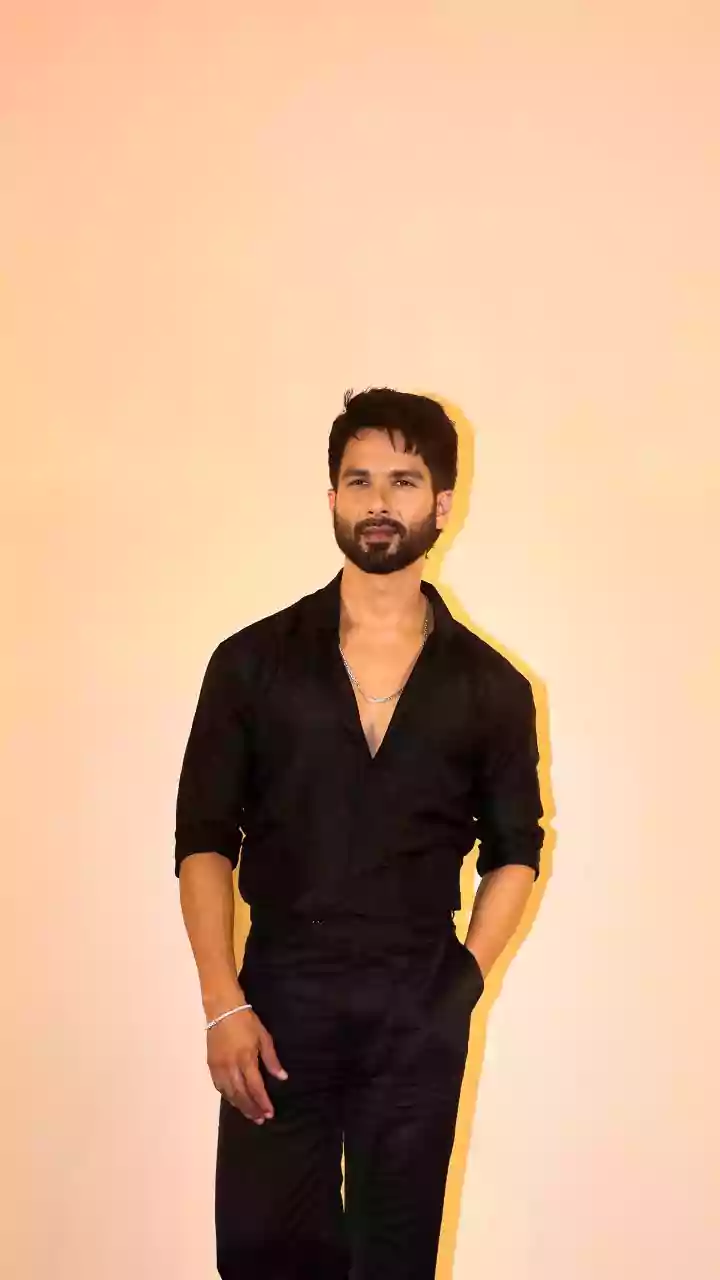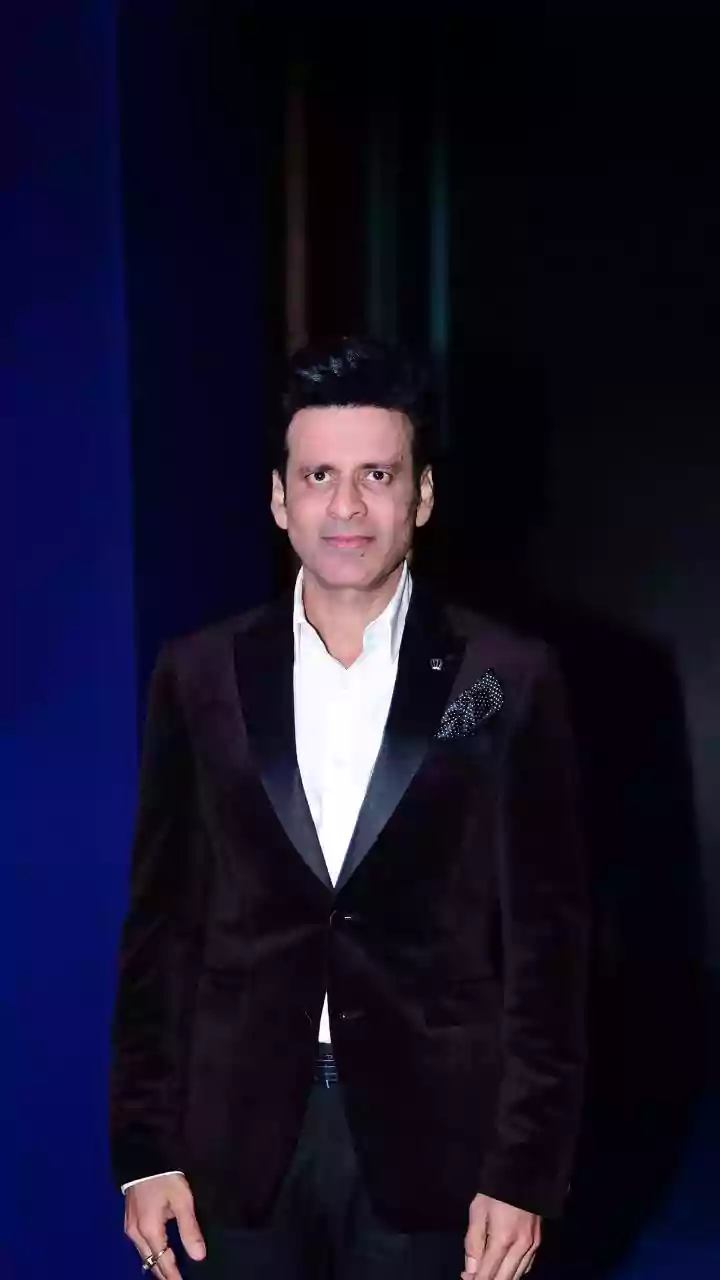October 24 marks another year without him - a voice so vast, so layered, that even legends whispered his name in awe, yet somehow the spotlight kept missing
him.
Ask a random cabbie in Kolkata or a chaiwallah in Mumbai about “Manna Dey,” and you’re bound to get a passionate lecture before your change comes back. There’s something raw, unfiltered about their memories - like the scratch at the beginning of an old LP.
Coffee House,’ the iconic song by Manna Dey, remains a beloved classic — cherished not just by Bengalis, but by anyone who loves melody, nostalgia, and coffee.
(@music_sphere_/Instagram)
Yet for all that, Bollywood seemed cagey about making him its headline act. Was it the classical training, perhaps too rigorous for the whiskey-swilling studios? Or just bad luck of timing? You can sense his voice straining against typecasting in “Ek Chatur Naar,” where Kishore Kumar steals the show, or “Na to karvaan ki talash hai,” Rafi pipping him at the post. Dey was the solid wall, others the flashy paint.
Manna Dey sings ‘Ek Chatur Naar’ opposite Kishore Kumar in what you could call today India’s first rap battle.
(@bollywood_evergreen_/Instagram)
The Oddly Twisted Ladder
Manna Dey, the voice of Romance!
— LivDemy (@LivDemy) September 24, 2025
His voice redefined romance in Hindi cinema. From Pyar Hua Ikraar Hua to Yeh Raat Bheegi Bheegi, his songs carried sincerity, depth, and timeless charm — making love feel eternal through melody.
What's your favorite #MannaDey romantic song? pic.twitter.com/0b5XyDQERn
“Ae Bhai Zara Dekh Ke Chalo” - a favourite across generations - was sung by Manna Dey for the 1970 film ‘Mera Naam Joker.’
(@Aarzaai_Ishq/X)
Born as Prabodh Chandra Dey in Calcutta, 1919, to say he was “encouraged” by his uncle Krishna Chandra Dey feels like calling a monsoon “a bit of rain.” He learned music splayed across his uncle’s knees, absorbing ragas like others caught marbles. Wrestling and football? Sure, he trained at Goabagan akhra in Calcutta. You wouldn’t expect a gentle qawwali singer to stay up with Gobar Guha. Yet, he did.
Manna Dey, the voice of Romance!
His voice redefined romance in Hindi cinema. From Pyar Hua Ikraar Hua to Yeh Raat Bheegi Bheegi, his songs carried sincerity, depth, and timeless charm — making love feel eternal through melody.
What's your favorite #MannaDey romantic song? pic.twitter.com/0b5XyDQERn— LivDemy (@LivDemy) September 24, 2025
Manna Dey, The Voice of Romance.
(@LivDemy/X)
College was Scottish Church, then Vidyasagar. By college’s end, stage shows and music competitions became bread and butter. His Bollywood debut “Jaago ayi usha panchhi boley” for “Tamanna” (1942) didn’t exactly make radio waves, though soon enough, “Upar gagan vishaal” (Mashaal, 1950) rolled in and caught the wind. Perhaps not instantly, not with Rafi, Mukesh, and Kishore jostling for microphone space.
Remembering the legendary Manna Dey on his birth anniversary, a voice that defined generations.
Here’s "Ke Tumi Nandini" from Teen Bhuboner Pare - the first-ever Bengali rock & roll we heard in movies. pic.twitter.com/45YZez5w4q— Sanghamitra Bandyopadhyay (@SanghamitraLIVE) May 1, 2025
Manna Dey's "Ke Tumi Nandini" marked a shift in Bengali film music, incorporating a Western rock-and-roll style with a distinctly Bengali feel.
(@SanghamitraLIVE/X)
Sometimes one wonders : Was he simply too adaptable for studio machinery? The guy did 3,500 songs in 18 languages. Name another singer who could go from Bengali ballads to Hindi zesty numbers and then throw in the odd wrestling anecdote for good measure.
Masterpiece of Manna Dey a folk song from Gujarat! What an amazing archive! pic.twitter.com/brDvcE3rPY
— Dr.MAULIK SHAH (@maulikdr) October 25, 2024
Manna Dey sings a Gujarati folk song.
(@maulikdr/X)
More Than a Pretty Melody
This is a treat for lovers of Classical music. From the film Basant Bahar, sung by Bhimsen Joshi and Mannadey. Manna Dey was nervous to compete against Bhimsen Joshi, the legendary vocalist, and even tried to avoid the recording, but his wife encouraged him to face the
— Shekar Iyer (@SHEKARSUSHEEL) September 8, 2025
Contd.. pic.twitter.com/zRPk8lJsS6
Manna Dey sings “Ketaki gulab juhi” in a musical duel, “jugalbandi”, with Pt. Bhimsen Joshi. Movie: Basant Bahar.
(@SHEKARSUSHEEL/X)
Classical prowess? Sure, but dots and lines miss his sly sense of rhythm. Listen to “Ketaki gulab juhi,” that epic musical duel with Pandit Bhimsen Joshi, and you’ll hear him push, pull, tease - not just notes, but the very idea of what a playback singer should sound like. Or the philosophical rumble in “Zindagi kaisi hai paheli,” a song that really could have doubled as a memo to studio bosses who, for some reason, couldn’t make up their minds to give him the top spot.
A favourite melody voiced by none other than Manna Dey from the movie ‘Anand’.
(@thesuperstarkaka/Instagram)
That’s the irony, perhaps the heartbreak - this is no tragic hero story, though. Bollywood’s big brass always reserved starring numbers for trendier voices. Manna Dey, meanwhile, got relegated to "special numbers" - ironically, the tracks that other singers couldn’t pull off. My favorite tidbit? Rafi, possibly the biggest name of all time, famously said he listened most to Dey’s songs, even if the masses didn’t always.

“People listen to my songs, but I only listen to Manna Da’s songs.” - Mohammad Rafi.
(@FiomHistoryPic/X)
Not Just Nostalgia - A National Treasure
A short walk away from the Haveli in Simla bazar, Kolkata, Iftekhar Ahsan took us down a winding alley to show us the house where Manna Dey learnt music from his blind uncle. Unlike Ghalib’s Calcutta home, this was well maintained. @CalcuttaWalks pic.twitter.com/kY754gfBhu
— Rakhshanda Jalil (@RakhshandaJalil) July 10, 2024
Where Manna Dey learnt music from his uncle Krishna Chandra Dey.
(@RakshandhaJalil/X)
Dey got the Padma Shri, Padma Bhushan, Dadasaheb Phalke Award, but didn’t become anyone’s automatic “hero’s voice.” Still, ask anyone what truly defines the Golden Age - they’ll probably mention Manna Dey somewhere in the mix, just after Rafi and Kishore, but always with a touch of reverence.
On this birth anniversary, spare a moment to let his catalog play - not just for nostalgia, but to recognize a talent Bollywood undervalued for far, far too long. Some voices, I believe, need no megaphone. They linger. They haunt. Manna Dey does both - sometimes in ways even film historians can’t explain.




















